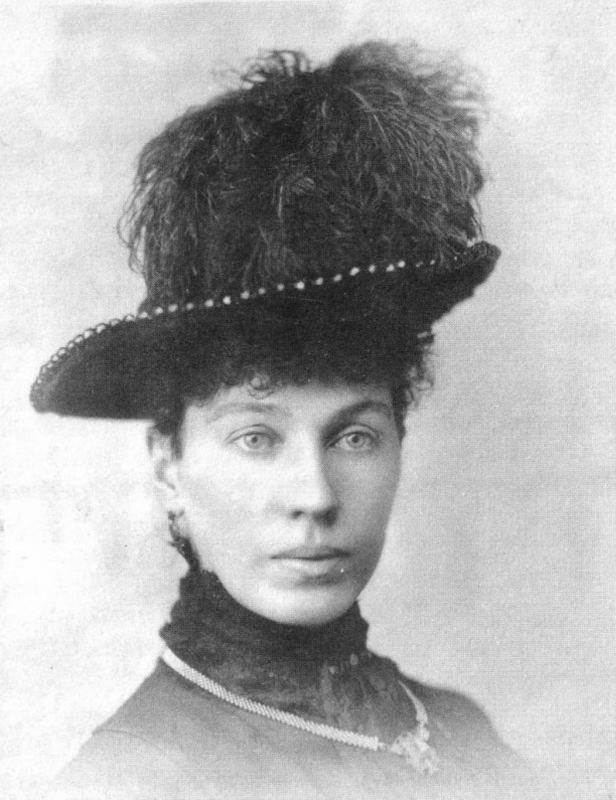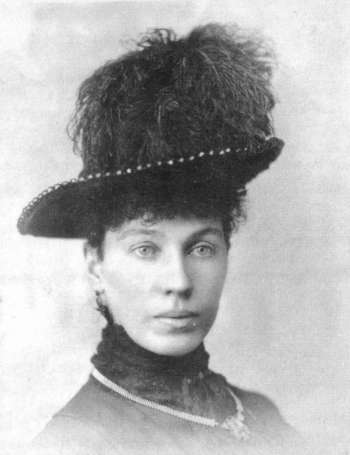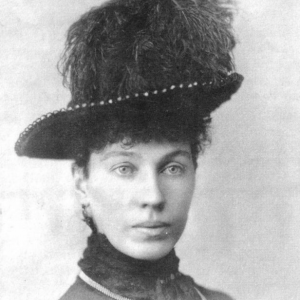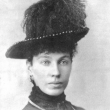This Week in Lincolnville: And the Child Prattled On
I posted this story several years ago. It’s from Staying Put in Lincolnville: 1900-1950, but as we increasingly rely on our phones it still seems timely. And besides a recent encounter at the Apple store reminded me all over again of the Centre Lincolnville Telephone Company.
The quotes are Joe Mullin’s from an address he made before a Bangor convention of the Maine telephone companies of the New England Telephone & Telegraph system in about 1917.
Lincolnville in 1904 was in an interesting position. Like those in other rural towns Lincolnville people relied on the mail to converse across the miles with family, friends and business contacts. Yet in neighboring Belfast and Camden folks could call one another up on the telephone. The very nearness of this modernity just out of their reach nagged at some forward-thinking men in Lincolnville, and they began talking about the possibility of extending a “farmer’s” line up from Camden to the Centre.
But New England Telephone & Telegraph Company (NET&T) needed a sufficient number of subscribers before they would build such a line, and there weren’t enough willing to sign up. In the end that was a good thing, for NET&T would have built but a single line from Camden accommodating only those who lived along it; anyone living off the Camden Road would be left out. As it turned out, one of those was Joe Mullin.
Joseph Mullin, born on Vinalhaven in 1863, found his way to Lincolnville via Eastern State Normal School, the teachers’ college in Castine, where he met Jennie Lamb from Lincolnville. The two married, but she died just eight months after their marriage. A few years later he married her sister, Annie, and they lived at Willow Farm on Mullins Bog Road. That house is now gone. Joe Mullin was many things in his long life—school teacher, surveyor, farmer, summer boarding house proprietor, state legislator, justice of the peace, chronicler of Lincolnville life through his poetry—but his most lasting contribution is as founder of the Centre Lincolnville Telephone Company.
Now, Joe became convinced that Lincolnville must build its own line, and he set about persuading the rest. Those included, among others, the storekeeper Nathan Ross (of today’s Lincolville General Store), farmer-millman Abraham Lincoln “Linc” Young, Joel Fernald, fellow poet-farmer Arno Knight, John Dean, and mill owner Dave Heal. They worked up a plan to build a mutual neighborhood line with no thought of connecting to the outside world, i.e. Camden. Each man would subscribe an equal amount payable in cash, poles or labor. Assessments would be made whenever funds were needed for upkeep. Some twenty-five people agreed to join.
CALENDAR
MONDAY, Feb. 7
Selectmen meet, 5:30 p.m., Camden Town Office
TUESDAY, Feb. 8
Library open, 3-6 p.m., 208 Main Street
Comprehensive Plan Review Committee, 7 p.m., Town Office
WEDNESDAY, Feb. 9
Library open, 2-5 p.m., 208 Main Street
Planning Board, 7 p.m., Town Office
THURSDAY, Feb. 10
Conservation Committee, 4 p.m., Town Office
FRIDAY, Feb. 11
Library open, 9-noon, 208 Main Street
SATURDAY, Feb. 12
Library open, 9-noon, 208 Main Street
EVERY WEEK
AA meetings, Tuesdays & Fridays at noon, Community Building
Lincolnville Community Library, For information call 706-3896.
Schoolhouse Museum by appointment, 505-5101 or 789-5987
Bayshore Baptist Church, Sunday School for all ages, 9:30 a.m., Worship Service at 11 a.m., Atlantic Highway
United Christian Church, Worship Service 9:30 a.m. via Zoom
But the more they thought about it and discussed if over that winter of 1903-04, the more they realized it would be nice to talk to Camden “in case we should need a doctor, or to inquire the price of eggs or pumpkins”. Joe sought the advice of Maynard Bird of Rockland’s Knox Telephone & Telegraph Company, who said “we were on the right road but facing the wrong way,” pointing out that a mutual assessment company would spell trouble and end in ruin from the start. The only sure way to success, Bird argued, was to incorporate, then sell stock to those who wanted the service. Payment for the stock could be taken in poles, labor or cash.
Joe and his fellow telephone pioneers took the new proposition, which included a dollar-a-month charge, to townspeople, canvassing them anew. Several who had earlier been on board now turned them down, preferring “to go a while longer on snow shoes rather than pay twelve dollars per year for a telephone.”
But eventually eighteen householders were persuaded, and in March 1904 the Centre Lincolnville Telephone Company was organized and incorporated under General Law with capital stock of $1500. The first installation included the main line from Camden to Centre Lincolnville with branch lines from the Centre to Hope Corner, to Searsmont Village and to Centre Belmont via Miller’s Corner. As Joe noted, “And the child was born.”
The lines required about fourteen miles of pole line including two and one-half miles of tall line to Camden which was cross-armed to carry two wires. Dave Heal and Linc Young immediately set out into the woods with hand sleds to cut poles, paying the landowners for them with stock in the new company at five dollars per share.
The frost was barely out of the ground in the spring of 1904 before they were setting the poles; cedar was the preferred pole wood, but they used juniper when cedar wasn’t available. “Several people who ought to have known better told us it was as good as cedar,” Joe said, but as it turned out, the juniper poles were impenetrable by lineman’s spurs and soon decayed at ground level. “We would not take a pile of them as a gift,” he concluded.
The wires were run to the cable box of the Camden exchange in July, and by August they’d installed telephones in the homes of the first eighteen subscribers, and hooked it all up to a switchboard. They got lucky when they found a place to locate the new switchboard, and a person, Tamson Scruton, to operate it in her house in the Center; that house burned to the ground a few years ago. Tamson agreed to become the new company’s operator for fifteen percent of its annual earnings, which, its founders thought, might add up to forty or fifty dollars a year. It was presumed that she could tend to what calls came in and out without interfering much with her household work.
Now that “the child could talk, and talk loud enough to be heard in Boston”, It was as important a moment to the people of Lincolnville as “when the island of Nantucket established communication with the mainland.”
But those initial eighteen subscribers kept Tamson so busy at the switchboard, she could barely get to her housework and made less than ten dollars the first three months. As Joe Mullin was quick to admit years later, “there was no one among us who knew anything about telephones either in a technical or business way, and about all we had for instruction was contained in the advertising circulars we began to receive as soon as we were incorporated.” That included Tamson who found herself face to face with the “bell switchboard” they’d purchased for fifty dollars.
It was equipped with four lines and one cord by which the operator answered incoming calls and then called the desired party. One of the two pairs of connecting cords then hooked the households together. To find out if a connected line was busy she had to remove one plug and insert hers to inquire. That October three more customers signed up, in December seven and in January 1905 two. “And the child kept growing, and prattled more and more.”
As the lines were extended and more phones were ordered, they added four more lines to the board, each with its own bell. “. . . imagine,” wrote Joe, “the jangle and clangor of those eight bells of different tones, and thirty or forty subscribers on the lines and the operator having only one cord which which to call or answer calls.” Something had to be done. So Joe traveled to Boston and bought a twenty “drop” board “which of course would serve our company for all time” and sent the bell board “to the barn chamber where it has been gathering dust ever since.”
Tamson Scruton, who knew absolutely nothing about a switchboard or telephone when she began, grew up with the business just like the company’s directors. She worked out of a room off her kitchen, a room with a tin ceiling and a separate entrance. This room truly became “Central”, as it was known, in the years to come, and as more women were hired as telephone operators.
Tamson’s son, Everett, who was as tall and skinny as a telephone pole himself, worked as a lineman for many years. With his toolbelt around his waist and metal cleats on his boots he’d shinny up the poles with just a leather strap for support. After his marriage in 1911 to May Norton, his new wife gave up her work as a milliner to work the evening shift on the switchboard. Many nights she couldn’t eat supper until eleven o’clock when she went off duty.
The business end of a running a telephone company was as interesting to Joe Mullin as the nuts and bolts, or rather the poles and wire. The company, which was legally capitalized at fifteen hundred dollars, had paid for poles in five dollar shares of stock, set them and strung the wire themselves (taking stock for their labor) and sold stock for cash whenever possible. Most of those who bought stock did so more out of a desire to see a telephone company in Lincolnville than as an investment from which they expected to see dividends.
So, at the end of the first season, when they realized they’d expended thirteen hundred dollars, quite a bit more than what cash they’d received for stock, they had a problem. The directors decided to announce that a five per cent dividend would be paid on stock sold, and then they notified the local newspaper correspondent. Word got out that the company would be paying a dividend, and for the moment, their troubles were over. Now, potential investors saw the Centre Lincolnville Telephone Company not as a civic betterment project but as a sound financial investment.
That first dividend was paid just six months after the first eighteen telephones were installed, and was followed up with another dividend every six months. Joe Mullin wrote, “We firmly believe that it was these early dividends that kept us off the rocks of adversity in the ‘Sea of New Experiences.’” By 1917 the company’s subscriber list hovered at nearly two hundred households. Since the 1920 census listed just two hundred and five households in Lincolnville, it’s understandable that Joe could say “. . . the child has nearly got its growth.”
One day last week Don and I walked into the Apple store at the Maine Mall, he with an ailing phone in his pocket and me along for the ride. We were immediately greeted by a perky young woman in a red Apple shirt – “may I look at your phone?” she asked politely. Within minutes, after setting it down and randomly tapping on her iPad she’d diagnosed the problem: faulty hardware.
He needed a new phone, and as it turned out, since he’d taken out a warranty on it, it would be free. That’s a sideline to the story, since he’d succumbed to a sales call some months ago (you know, like the “your car’s out of warranty” calls we all get) and had been kicking himself ever since to be paying a higher phone bill as a result.
But sometimes those things do work out, and this time it did. The new phone arrived within a couple of days with the caveat that he send back the old one within 5 days or pay $500 – big enough to pay for that new phone.
Nothing’s ever easy. The old phone still held all the data, the contacts, the photos, the texts, the emails, the favorite apps – all the stuff we collect on our phones. They tell you it’s easy to transfer it. It’s not. They – the phone gods -- want all those passwords you’ve long ago lost, they want your iPad to talk to your new iPhone, they want to know your wifi network, your email password. Your brain’s already too full of stuff you never knew you needed to know: bandwidth, battery health, your pace per mile, heart rate, credit card number, My Chart’s latest scary news.
I’m picturing Tamson Scruton, the dishes piling up, the carpet unswept, young Everett unattended, frantically plugging and unplugging those bloody cords, bells jangling as impatient callers all over town cussed the operator (whom they all knew!) for ignoring them.
And Joe Mullin, not unlike the perky Apple woman who could allay all fears, calmly assured the corporation that would become Tidewater Telcom Inc., that “the child has nearly got its growth.”
A Day on the Ice
Saturday turned out to be a perfect, if very cold, day to go ice fishing. The LCS’ Parent-Teacher Organization sponsored an ice fishing derby that from all accounts was a big success. Families came out with fishing traps, ice shacks and shelters, snowmobiles – all the gear of winter.
And isn’t it nice that we’ve finally got a winter? Real snow, thick ice on the ponds. How long has it been since we’ve seen trucks on the pond? Remember the ice out contests in March and even April, when the ponds were frozen solid. Peg Miller loved keeping an eye on Pitcher Pond which stretches out in front of her Belfast Road house, perched up high and announcing the day when the ice finally gave up the ghost.
Beach Schoolhouse Renovation
Andy Young’s crew is hard at work inside these days, saving the siding and roofing for better weather. Installing two steel beams to support the second floor has meant a new ceiling for the first floor, which has caused the old plaster and lath walls to be taken down. And that’s allowed for insulating those walls. Electrician Rick McLaughlin is running wiring for new lights in the room and all that entails. If you’re curious, pop in and take a look if you see trucks outside. The LHS’ 1851 building is getting new life!
Jane Hardy reminds Historical Society members that it’s time to renew membership and if you wish, donate to the project: individual - $10, family - $20, lifetime - $200. Send a check to LHS, PO Box 204, Lincolnville 04849 or do it online.
Speaking of History
Our area lost a treasure recently; Barbara Dyer, longtime Camden historian, passed away at the age of 97. Her name is on most of the writings documenting Camden’s history. I loved trading information with her.
And Charlie Hackett died, a jazz musician and lifelong Lincolnville guy – from the age of four, a summer resident, and eventually, with his wife Monica, living full-time in one of the town’s oldest houses on Atlantic Highway. His family’s story is found in both Ducktrap: Chronicles of a Maine Village and in Staying Put.


























